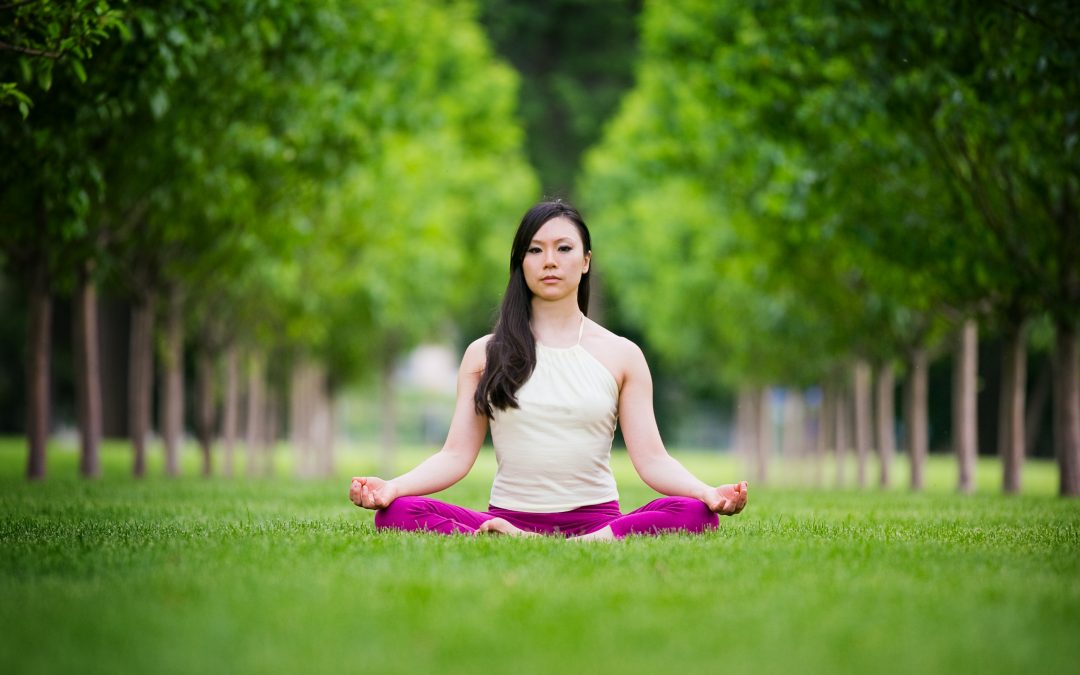The outward benefits of yoga seem almost too obvious when we begin to practice: strength, focus, peace of mind, balance… if you’ve practiced, you’ve felt it too. As we begin to peel away the layers, we may also discover other unexpected and invaluable benefits such as the way in which we relate to ourselves. The term that my meditation teacher uses is “making friends with yourself”; it is the process of letting go of that recurrent voice inside that tells you that you have to be something different than you are, when in fact, you are already all that you need to be. It is about accessing your true self, and it is the ease that you build in a yoga practice that molds the key.
In this manner, yoga heals. I regularly teach Yoga for Cancer Recovery workshops and my students cannot sing enough praises about how yoga has healed their body, mind, and souls. For a cancer survivor, nothing feels better than to proactively participate in promoting her own good health. What is most exciting to me is that my recovery classes actually encourage the students to do less, and I incorporate this concept by starting each class with meditation. The whole practice, meditation combined with yoga, is about waking up. In our modern lives, we are programmed to think that we will be happier if we do more and accomplish more. I am personally guilty of the same mindset, and it seems radical to break this paradigm. Not that I am denouncing productivity – it is important to realize and pursue our goals. A meditation practice may actually help us achieve our goals by understanding that there is nothing we can do that will make us healthier or happier than something we’ll find is already inside us. This concept, which seems so enigmatic and unattainable at first, is actually something that we can wake up to while in our practice and learn to meet in each moment as it arises. There is nothing mystical or religious about it. In fact, it is the most pragmatic principle that exists. Our practice simply asks us to be ourselves. When we accept and make friends with our true selves, our goals become within reach because we truly understand our potential. The hard work of uncovering that true self is up to you.
So now that you are convinced a meditation practice can be part of your yoga practice, how do you begin? Start by committing yourself to 5 minutes a day for a week. Then build up to 10 minutes the following week, 15 minutes the following, and finally 20 minutes in your fourth week. Be patient with yourself. No one is able to run a marathon without training, and your brain is the most difficult part of your body to train. Start by sitting up straight. Some people like to have an icon to focus upon, their eyes closed, or their eyes slightly open. I am for all of the above – choose the method that works for you. Find a comfortable seat in a chair, on a block, or cushion, or the good old floor will do just fine. The reason we sit up straight is that we believe that there is something dignified about our practice, that it serves us as much as we submit to it too. While practicing, own it and commit to it. Fight the urge to get off your cushion or mat to check your phone or jot down that item on your to do list that you miraculously remembered while “clearing your mind”. This practice teaches us that there is no thought so brilliant that you must hold onto it. In this manner, you begin to forgive, let go, and create ease in both your body and mind. Remember, start in baby steps, but really engage in it. Consider it your mind’s commitment to train for the Iron Man-Brain. You’ll find the training will pay off as you begin to meet each moment as it arises, let go in challenging situations, and find the best in yourself.

